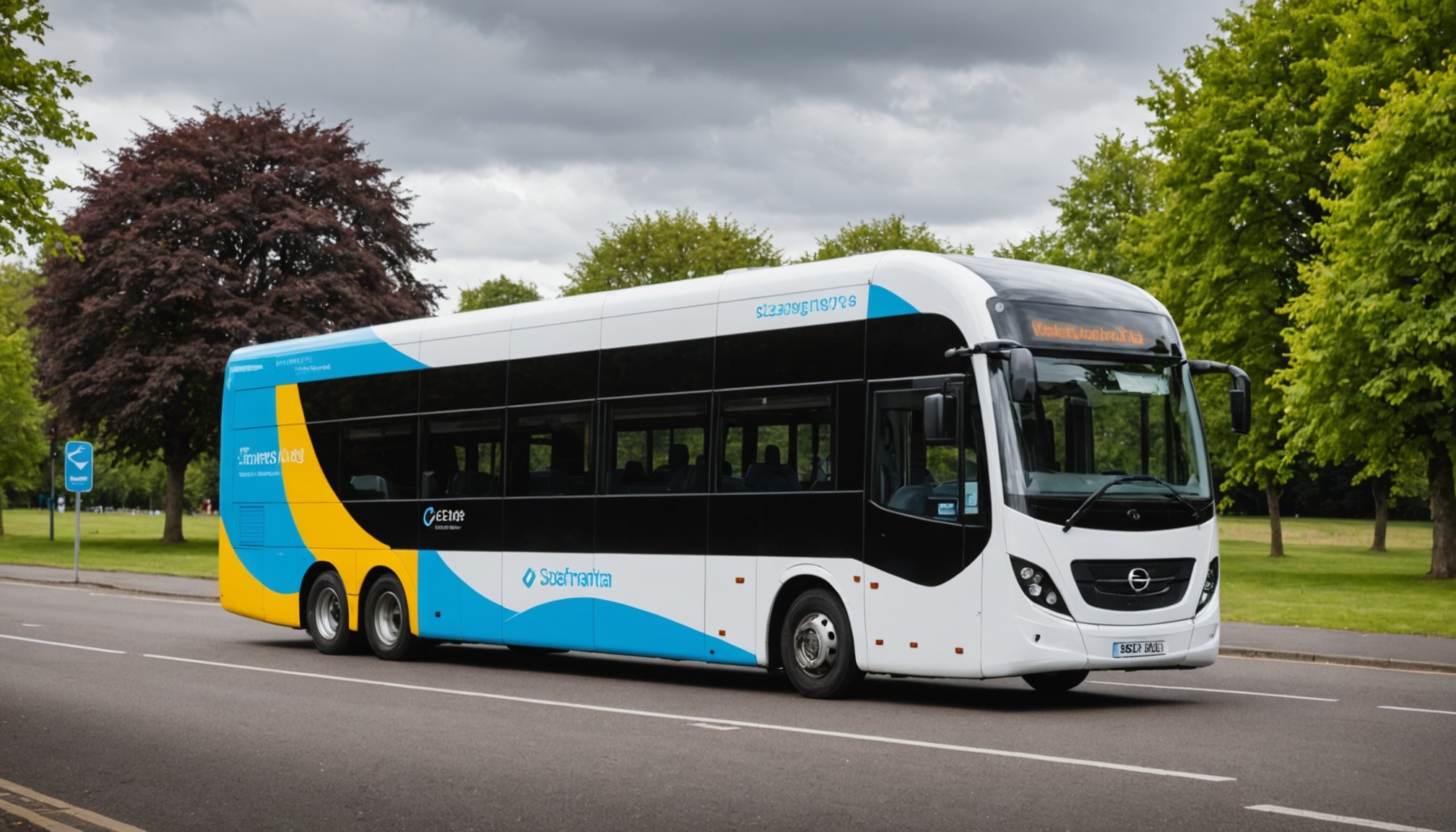Overview of Zero-Emission Commercial Vehicles in the UK
The United Kingdom’s commitment to zero-emission vehicles is a reflection of its dedication to clean transportation and combating climate change. These efforts are crucial as they aim to drastically reduce carbon emissions from the UK commercial fleet, which is a significant contributor to environmental pollution. Traditional diesel-powered fleets are increasingly seen as less sustainable, prompting a shift towards electric and hydrogen fuel alternatives.
Several government policies and incentives have been established to bolster zero-emission initiatives. Notable measures include tax reductions, grants for vehicle purchases, and investment in charging infrastructure. These initiatives not only support the adoption of zero-emission technologies but also stimulate economic growth by fostering innovation and job creation within the sector.
Also to discover : Your complete loft conversion planning and benefits guide
Key players in the UK zero-emission vehicle market include major automobile manufacturers like Nissan and Tesla, as well as startups focusing on cutting-edge battery technologies and hydrogen fuel cells. Stakeholders such as fleet operators, environmental NGOs, and tech firms are also instrumental in pushing forward the zero-emission movement.
Highlighting the importance of collaboration, these entities collectively strive to ensure the United Kingdom achieves its environmental goals through the widespread adoption of clean transportation solutions.
Also to read : Unlock 3 creative lofi guitar chord patterns to boost your tracks
Innovative Technologies Driving Zero-Emission Vehicles
The realm of clean transportation technology is blossoming, with advancements in both electric vehicles and hydrogen fuel cells paving the way for an eco-friendly future. These innovations are crucial to the UK’s ambition of reducing emissions from its commercial fleet and achieving emissions neutrality.
Electric Vehicle Advancements
The leap in battery technology is astounding. High-capacity batteries now allow longer travel ranges, making electric vehicles a viable option for broader commercial use. The expansion of charging infrastructure across the UK significantly influences electric vehicle adoption rates. Cities and motorways equipped with fast-charging stations reassure fleet operators of efficiency and practicality, facilitating a smoother transition to zero-emission operations. Case studies highlighting successful integrations demonstrate tangible benefits, setting an inspiring precedent for other businesses.
Hydrogen Fuel Cell Innovations
Hydrogen fuel cell technology holds promise as a clean transportation marvel. It combines hydrogen and oxygen to generate electricity, emitting only water as a byproduct. Participating companies deploying hydrogen-powered trucks are reporting operational successes, driving interest in these powerful yet clean alternatives. When comparing hydrogen fuel cells and electric batteries in commercial uses, each technology offers distinct advantages—fuel cells cater to longer-haul trucking needs, while electric batteries suit shorter, predictable routes.
Statistical Insights on Emissions Reduction
The adoption of zero-emission vehicles plays a pivotal role in mitigating the environmental impact of the UK’s commercial fleet. Current statistics reveal a significant drop in emissions as businesses shift from traditional diesel to cleaner alternatives. For instance, the deployment of zero-emission trucks and fleets has contributed to a notable reduction in carbon output, highlighting the importance of embracing such sustainable solutions.
Comparing emissions from traditional diesel vehicles to zero-emission alternatives uncovers stark contrasts. Diesel counterparts produce vast amounts of pollutants, whereas electric and hydrogen-powered vehicles are devoid of harmful emissions, only releasing substances like water vapour into the atmosphere. Consequently, businesses transitioning to zero-emission fleets are aligning with globally recognised sustainability standards.
Future projections suggest that continued adoption of zero-emission vehicles could further slash emissions. By 2030, widespread use could result in up to a 50% reduction in transport-related emissions compared to current levels. Such forecasts emphasise the potential of zero-emission vehicles to reshape the environmental landscape. As zero-emission technologies become more mainstream, their contribution to achieving national and international climate goals cannot be overstated.
Governmental and Industry Initiatives
The UK government is proactively steering the nation toward a greener future with strong policy initiatives aimed at promoting zero-emission vehicles. Key governmental actions include grants and tax reductions for businesses opting to transition their fleets to electric or hydrogen-powered options. This financial support helps mitigate initial costs, making the shift more feasible for companies.
National Policies Promoting Zero-Emission Vehicles
The government has set ambitious long-term goals for emissions neutrality, aiming to eliminate traditional vehicle emissions through strategic policies. These initiatives are backed by fiscal incentives that encourage businesses to pivot towards clean transportation. Companies that make the switch not only contribute to environmental goals but also gain economically from reduced operational costs over time.
Collaborations within the Industry
Industry partnerships are also pivotal. Collaborations between automobile manufacturers, tech firms, and municipal bodies accelerate the scaling up of zero-emission technologies. By joining forces, these stakeholders can demonstrate successful joint initiatives, enhancing the market for zero-emission vehicles.
The Role of Non-Governmental Organizations
NGOs play a vital role in advocating for and educating about the benefits of zero-emission vehicles. Through advocacy initiatives, they influence public policy and encourage consumer confidence, ultimately supporting a cleaner transportation future.
Challenges in Transitioning to Zero-Emission Commercial Vehicles
Transitioning to zero-emission vehicles presents notable challenges for businesses within the UK commercial fleet. Identifying these transition challenges is critical for developing solutions. Major barriers include the significant economic considerations involved in retrofitting or replacing existing fleets. For many companies, the initial costs of acquiring zero-emission vehicles can be prohibitive, despite governmental incentives. This economic burden often results in industry resistance, especially among small and medium enterprises.
Market obstacles further complicate adoption. The infrastructure required to support zero-emission vehicles, such as charging stations and hydrogen refuelling points, remains underdeveloped in certain regions. Limited accessibility can hinder seamless operations, deterring businesses from adopting these cleaner alternatives.
Public perception also plays a pivotal role. There are public perception issues related to new technologies; for instance, doubts regarding the performance reliability and range of zero-emission vehicles can lead to hesitancy among potential users. Overcoming these perceptions through educational campaigns and demonstrating successful implementations is crucial in shifting attitudes and fostering a supportive environment for clean transportation innovations. Advocacy by NGOs and collaboration with industry leaders can help bridge gaps, ultimately bolstering the national transition to clean vehicle solutions.
Future Trends in Clean Transportation
The future of transportation is both exciting and transformative, with novel technologies and policies shaping the landscape of clean transportation. Anticipated advancements in **battery and **fuel cell technology** are expected to further enhance the efficiency and range of zero-emission vehicles, making them more appealing for widespread commercial use.
Emerging Technologies
Emerging technologies, including AI and IoT, play a crucial role in optimising vehicle efficiency, logistics, and route planning. Upcoming regulatory initiatives promise to accelerate the adoption of zero-emission vehicles. Understanding these changes is key for industry players to adapt and thrive in the evolving market.
Market Opportunities for Businesses
The shift to zero-emission vehicles opens up innovative niches in clean transportation. Entrepreneurs can capitalise on growing consumer preferences for sustainability, perhaps by offering novel transport solutions or services. Such developments point to vibrant opportunities for businesses that can successfully integrate these technologies.
Global Comparisons and Lessons Learned
Global successes offer valuable lessons. Countries like Norway and the Netherlands have made remarkable strides in establishing zero-emission frameworks, providing blueprints for the UK’s advances. The UK is poised to position itself as a leader in clean transportation, potentially influencing international standards and practices.











